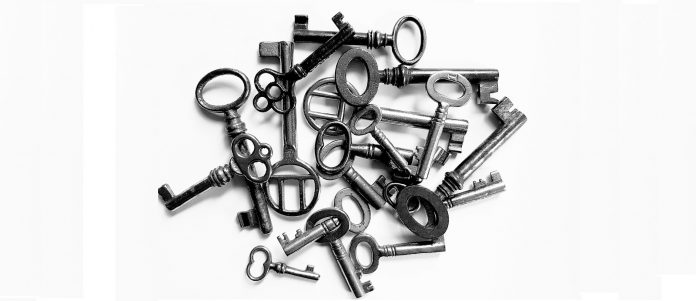PPF – Public Provident Fund
Bit confused? Well, it will be a lot easier if you enlist the professional assistance of the financial consultants in india.People can invest in Public Provident Fund through Post Offices in their area, 24 Nationalized Banks across the Country and ICICI Bank. Amount invested in PPF is subject to a mandatory lock in period of minimum 15 years. If people want to continue investing in PPF after the mandatory 15 years period time, the investment term can be further extended by 5 years every time. In order to keep the PPF Account active, it is mandatory that at least a minimum sum of Rs. 500/- is invested in the same every year. A maximum of Rs. 1.5 Lakhs can be invested in PPF account per year and the interest earned is tax free.
Sukanya Samriddhi Account (SSA)
Sukanya Samriddhi Accounts has been specifically introduced by the Government for the welfare of Girl children. It can be opened for all girl children below 10 years of age. A parent is eligible to open Sukanya Samriddhi Account only for 2 girl children maximum. Sukanya Samriddhi Account must basically be opened for 14 years and the maturity precedes from the same reaches the child after 21 years from the start date. A maximum of 1.5 lakhs can be invested in one account per year and a minimum investment of Rs. 1000/- per year is mandatory so the account remains active. If you have hired the reputed financial consultants in india they will also tell you that, interest earned from Sukanya Samriddhi Account is tax free and 50% withdrawal is allowed when the girl child turns 18 years old. The interest rate for Sukanya Samriddhi Account is linked to market performance and so reset once in a quarter
National Savings Certificate (NSC)
National Savings Certificate is offered by India Post for tax benefit under Section 80C. The current NSC VIII is available for the 5 years period. The interest rate is 7.9% for 5 years period and is market linked hence changes once in a quarter. Though there is no ceiling set by the Government for investment in NSC certificates, the maximum deduction allowed under Section 80C is 1.50 Lakhs per annum. NSC Certificates can be bought in denominations of 100, 500, 1000, 5000 and 10000 rupees certificates. Interest accrued for investments in NSC is tax free and tax benefit can be availed during the subsequent years also. NSC can be used as collateral securities for availing Bank loans
Bank Fixed Deposits and Post Office Deposits
According to some of the financial consultants in india, Bank Fixed Deposits can also be used for effective tax saving purposes when invested in the specific product termed as ‘Tax Saving FD’. Such tax saving fixed deposits must be invested for a mandatory period of 5 years to avail the planned tax benefit. When investments are made on Fixed Deposits for longer periods of time, some financial institutions tend to offer higher rates of interests. An additional 0.25 to 0.50 percentage is paid to senior citizens when they invest in Tax Saving Fixed Deposits offered by banks. Reserve Bank of India insures all amounts up to Rs. 1 Lakh invested in Tax Saving Fixed Deposits.
Senior Citizens Savings Scheme (SCSS)
Senior Citizens Savings Scheme is for citizens who are above 60 years of age. Citizens who are above 55 years of age are also eligible for joining the Senior Citizens Savings Scheme 3 months after taking voluntary retirement from their services. Senior Citizens who join the Senior Citizens Savings Scheme can invest a minimum of Rs. 1000/- to a maximum of 15 Lakhs. Senior Citizens can invest in Senior Citizens Savings Scheme as a ‘Joint Account’ along with their spouse. The interest rate applicable for investment in Senior Citizens Savings Scheme is 8.4% and the interest is paid every quarter. Partial withdrawal of investment in Senior Citizens Savings Scheme is not permissible and the deposit can be renewed after 5 years for 3 years duration every renewal. Interest accrued from deposits on Senior Citizens Savings Scheme is fully taxable. If the total interest accrued from deposits in Senior Citizens Savings Scheme exceeds Rs. 10,000/- per year, the excess amount is taxable. HUF and NRI are not eligible to invest in Senior Citizens Savings Scheme.
Life Insurance
Term Plans that are offered by Life Insurance companies are the only products that provide Tax savings. Term Plans in which the sum assured in the event of death of the insured is 10 times higher than the annual premium are considered for tax exemption. In case the Term Insurance is taken by people with disability, the annual premium can be 15% of less than that on the sum assured. Going in for term plans that are capable of generating revenue that equals one’s income provide dual benefit along with Tax savings.
National Pension Scheme (NPS)
National Pension Scheme is divided into two types namely Tier 1 and Tier 2. Only investments in Tier 1 type of Pension schemes become eligible for Tax deduction under section 80CCD. In order to keep Tier 1 account of National Pension Scheme alive, a minimum amount of Rs. 1000/- must be invested per year. The other criterion is that Rs. 500/- is the minimum amount mandatory for every transaction. Self Employed citizens can claim a maximum deduction of 20% of their total yearly income under the National Pension Scheme. Salaried Employees can claim a maximum deduction of 10% of their annual Basic and Dearness Allowance.
Equity Linked Saving Scheme (ELSS)
Equity Linked Saving Scheme is basically a Mutual Fund that offers scope for Tax savings under Section 80C. It is a financial product that is highly market dependent. Anyone who wants to avail the benefit under Equity Linked Saving Scheme can start by investing a minimum amount of Rs. 500/-. There is no maximum limit set for investment in the Equity Linked Saving Scheme. The maximum possible tax deduction per year is 1.5 Lakhs. The proceeds accrued through investment in Equity Linked Saving Scheme are nontaxable. The maximum lock in period for investments made in Equity Linked Saving Scheme is 3 years.
Pension plans from Insurance Companies
Insurance Companies offer Pension plans that qualify for tax deduction under section 80CCC. People who want to avail the dual benefit of investments and insurance can go in for Pension plans from Insurance Companies which also offers tax savings as an extra benefit. The Assessee must ensure to understand the complete benefits a Pension Plan offers with respect to tax savings before going in for the same.
Tuition Fee
Tuition Fee paid towards educating children is exempted from tax under section 80C. Anyone who wants to avail tax benefit out of Tuition Fee payment can do so only for a maximum of two children. The maximum tax deduction permitted as per section 80C over Tuition Fee is 1.5 Lakhs per year put together. Only Tuition Fee is considered valid for the purpose of claiming deduction under Section 80C and no other heads like Lab Fee or Library Fee among the many others.
Tax deduction through Tuition Fee under Section 80C can be availed only for full time education courses. Fees paid towards Private tuitions and coaching classes are not eligible to be considered for tax deduction under section 80C. Deduction is not permitted under Section 80C for studying courses that are part time or short term in nature. Tax benefit can be claimed based on Tuition Fee paid towards education through educational institutions located in India only.
Stamp Duty and Registration Charges
Under section 80C, a maximum sum of 1.5 Lakhs deduction every year can be claimed in Stamp Duty and Registration Charges only for the purchase of new residential properties. Deduction can be availed under section 80C for all Stamp Duty and Registration Charges paid during the concerned fiscal year. Deductions for Stamp Duty and Registration Charges paid during the previous fiscal year cannot be carried over to the subsequent years. Stamp Duty and Registration Charges can be claimed by the Assessee only if the property for which the same was carried out is in his name. The Assessee must have made payments towards Stamp Duty and Registration Charges from funds in his own account.
Home Loan – Interest and Principal
Home Loan Interest and Principle fall under three sections namely Section 24, Section 80C and Section 80EE. A maximum of 1.5 Lakhs deduction can be claimed towards Home Loan Principal under Section 80C. A maximum of 2 Lakhs deduction can be claimed towards Home Loan Interest under Section 24. An additional deduction of Rs. 50,000/- can be availed under section 80EE. For claiming deduction under Section 24, Section 80C and Section 80EE, the house can be self occupied or rented out. The main criteria for claiming deduction under these sections is that the property must be in the name of the Assessee. Anyone who has taken a Home Loan from NBFC’s and Banks is eligible for deductions under Section 24, Section 80C and Section 80EE. These deductions can be availed by people who own multiple properties too. The loss or gain incurred through the property comes under Section 24. As per the act, rent received is considered as Income and interest paid towards Housing Loan availed is considered as Expenses.
Deduction against Home Loans can be claimed by the Assessee for the property in his name only for the concerned fiscal year. Deduction can be claimed towards Pre EMI Interest for the period between starting and completion of construction, in 5 equal installments. For all Housing Loans taken before April 1, 1999, the maximum possible deduction on Home Loan interest is Rs. 30,000/-
Section 80EE offers added exemption of Rs. 50,000/- for loan amounts lesser than 35 Lakhs and the total cost of the property must not exceed 50 Lakhs. The Assessee is eligible for deductions under the above sections only if he does not own any other type of property when the current loan is sanctioned.
Home Improvement Loan – Interest
If you hire the financial consultants in india , they will tell you that all those who take loan towards Home Improvement can avail a maximum of Rs. 30,000/- deduction under Section 24. Deduction under Section 24 can be claimed for furnishing the existing Home or painting/repairing an already existing home. One main condition to be adhered to for availing deduction under Section 24 is that the same must be self occupied by the Assessee.
Rs. 30,000/- exemption is above the 2 Lakhs cap and no one can claim deduction on the Principal aspect of Home Loan Improvement Loan. A maximum of 85% loan can be availed on the Home improvement valuation estimated. Home improvement loan is usually higher than the Home Loan by 0% to 2.5% if both are availed from the same financial institution. The same may vary if availed from a different financial institution. The Assessee must take in to consideration the extent of deduction viz-a-viz the interest rate for which the loan is availed to reap maximum benefits.
Medical Insurance
Under Section 80D, all premium amounts paid towards Health or Medical Insurance coverage for Self, Parents, Spouse and Children qualify for deduction. In case you are below 60 years of age the maximum deduction you can claim Rs. 25,000/- per year. In case you are above 60 years of age the maximum deduction you can claim Rs. 30,000/- per year.
If Health Insurance is bought for Parents who are senior citizens, an extra deduction of Rs. 2500/- per year can be claimed towards the same. You can claim extra deduction irrespective of the fact if the parent for whom the insurance is being taken is dependent on you alone or not. If a family falls under the HUF structure, the Assessee is eligible to claim deduction towards Medical Insurance for all members attached to the family. Section 80D permits covering every individual member who belong to the HUF under Medical Insurance.
Education Loan
Section 80E provides deduction for the complete amount paid towards interest on Education Loan availed for higher education. Deduction cannot be claimed on the Principal amount of the Education Loan availed. Education Loan can be availed by the Assessee towards studies of Self, Children and Spouse. Deduction towards interest paid for Education Loan availed is applicable only for full time courses.
Interest for all Education Loans taken from approved Financial Institutions and Charitable Trusts is eligible for claiming deduction under Section 80E. Deduction towards interest paid for the Education Loan availed can be claimed from the 1st year of availing the loan till the 7th year only. This is an indicator to the fact that the maximum tenure of Education Loan supported is totally 8 years overall.
Treatment of certain diseases
Tax exemption can be claimed for the treatment of certain diseases under Section 80DDB. This section provides relief from tax payment for expenses incurred on treating certain diseases for self, dependent children, spouse, dependent siblings and dependent parents. Section 80DDDB classifies the deduction amounts in to three categories based on the age group of people for whom the treatment is offered by the Tax Assessee.
A maximum of Rs. 40,000/- per year can be claimed under this section by all who are under the age of 60 years. Senior citizens above 60 years of age can claim a maximum deduction of Rs. 60,000/- and very Senior Citizens can claim a maximum deduction of Rs. 80,000/-. Some medical conditions that are covered under Section 80DDB are Neurological diseases, Thalassaemia, Parkinson’s disease, Hemophilia, Malignant Cancers, Chronic Renal failure and AIDS.
Physically disabled Assessee
Section 80U provides tax relief to physically disabled Assessee towards the diseases or disabilities he suffers from. In the case of normal disabilities, the Assessee can claim a maximum deduction of Rs. 75,000/- which works out to 40% or higher than the disability. If the disability is severe, the maximum deduction that can be claimed per year is 1.25 Lakhs which works out to 80% or higher than the disability.
Some disabilities covered under Section 80U are Cerebral Palsy, blindness and vision problems, Autism, Leprosy, Mental retardation, Hearing impairment and Locomotors disability. To avail the tax benefit, the concerned must produce appropriate Medical Certificates and all other paper formalities as required by the section, at the time of filing the returns.
Handicapped Dependents
Section 80DD provides relief to claim deduction towards expenses incurred by the Assessee for treatment and maintenance of dependents who are differently abled. A maximum of Rs. 75,000/- or complete expenses incurred during the year, which is lesser can be claimed by the Assessee. The section accepts spouse, parents, children and siblings as dependents of the Assessee for the purpose of implementation of this clause.
40% or more of Leprosy cured, Mental retardation, Blindness and vision related issues, Locomotors disability and Hearing impairment are considered eligible for claim under Section 80DD. All costs pertaining to medicines, rehabilitation training and nursing fall under eligibility clauses under section 80DD. All papers pertaining to the treatment, maintenance and training offered to the Handicapped must be maintained in a perfect manner. This will help claim the income tax deduction permitted under Section 80DD.
Donation to Approved Charitable Organizations
Section 80G provides tax relief when donations are offered to charitable organizations. While some donations become eligible for 100% tax relief, certain type of donations become eligible for 50% deduction. For many type of donations, a maximum of 10% of the gross income per year can be claimed.
For claiming deduction under section 80G, proper receipt has to be received from the beneficial charitable Institution. The receipt must have the 80G registration number issued by the Income Tax Department. The name of the Assessee on the receipt must match with that in the PAN Card. It is important that the amount donated must be mentioned in numbers as well as in words clearly. Ensure that the receipt received from the charitable organization towards which the donation is made has the date of donation. This is important since it relates to fiscal year for which the Income Tax filing is being done and deduction claimed.
Donations to Political Parties and Scientific Research
Section 80GGA provides tax relief for donations made to Political Parties and Scientific Research. All donations made for Scientific Research to Research organizations, Universities, Colleges, Schools and approved Institutes are eligible for deduction under Section 80GGA. Donations made towards research on Social Science, Statistical Research and Rural Development also qualify for claiming deduction under this section of Income Tax Act. All donations made to an approved Public Sector Companies, Institutions and Associations approved by the National Committee and National Urban Poverty Eradication Fund are also eligible for claiming relief under Section 80GGA.
Under section 29A of Representation of People Act, Section 80GGC, 100% tax relief is provided to all those who donate money to Political parties. The maximum possible exemption provided is 10% of the annual income per year. People contributing donations to Political parties must adhere to the rules and regulations laid out by Section 29A of Income Tax Act of India.
Interest on Savings Account
All those who invest their money in Savings Accounts offered by Banks can save money from paying tax under Section 80TTA. A maximum of Rs. 10,000/- put together is exempted per year on interest earned from deposit in Savings accounts. According to most of the best financial planners in India it is important that Income Tax Assessees meticulously track the interest they earn from their investments in Savings Accounts. This will help them save from paying excess amounts towards Tax when they exceed the permissible limits. Meticulous tracking of interest amount earned from Savings Accounts will help Income Tax Assessees to decide on the other avenues of Investment.
House rent in case HRA is not part of salary
Under Section 80GG, if HRA (House Rent Allowance) is not a part of salary break up, House rent deduction is available. All Assessee can claim this irrespective of their profession status namely self employed, salaried or pensioner. The maximum deduction that can be claimed under Section 80GG is 10% of the total yearly income. Deduction can be claimed by the Assessee under this section only when none of the dependents like spouse, children or parents own a house on their name. If the dependents own a property on some other area other than where the Assessee resides, the rental income from the same must be considered for tax deduction purposes.
List of eligible organizations
Under Section 80G, donations to the following organizations are 100% exempted from Tax.
- Africa (Public Contributions-India) Fund
- Approved university/educational institution
- Army Central Welfare Fund, Indian Naval, Air Force Benefit Fund
- Andhra Pradesh Chief Minister’s Cyclone Relied Fund
- Chief Minister’s Earthquake Relief Fund
- Central Welfare Fund
- Chief Minister’s or Lt. Governor’s Relief Fund
- Central Govt.’s Fund for Technology Development & Application
- Clean Ganga Fund
- Government / local authority/ institution/ association towards promoting family planning
- Indian Olympic Association/ other such notified association
- Medical Relief Funds of state Government
- National Defense Fund
- National Blood Transfusion Council
- National Illness Assistance Fund
- National Sports Fund
- National Cultural Fund
- National Trust for Welfare of Persons with Autism, Cerebral
- National Fund for Control of Drug Abuse (NFCDA)
- Prime Minister’s National Relief Fund
- Prime Minister’s Armenia Earthquake Relief Fund
- Palsy, Mental Retardation & Multiple Disabilities
- Swachh Bharat Kosh
- Zila Saksharta Samiti
Under Section 80G, donations to the following organizations are 50% exempted from Tax.
- Authority/ corporation having income exempt under erstwhile section or u/s 10(26BB)
- Donations to govt./ local authority for charitable purposes (excluding family planning)
- Donations for repair/ renovation of notified places of worship
- Indira Gandhi Memorial Trust
- Jawaharlal Nehru Memorial Fund
- National Children’s Fund
- Prime Minister’s Drought Relief Fund
- Rajiv Gandhi Foundation
- Udavum Karangal
- World Vision India



















